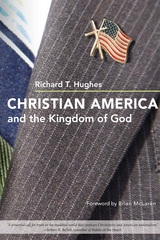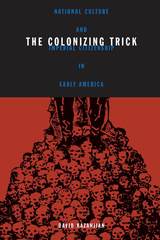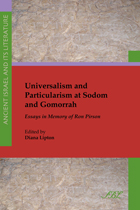3 books about Particularism (Theology)

Christian America and the Kingdom of God
Richard T. Hughes
University of Illinois Press, 2012
The idea of the United States as a Christian nation is a powerful, seductive, and potentially destructive theme in American life, culture, and politics. And yet, as Richard T. Hughes reveals in this powerful book, the biblical vision of the "kingdom of God" stands at odds with the values and actions of an American empire that sanctions war instead of peace, promotes dominance and oppression instead of reconciliation, and exalts wealth and power instead of justice for the poor and needy. With extensive analysis of both Christian scripture and American history from the founding of the republic to the present day, Christian America and the Kingdom of God illuminates the devastating irony of a "Christian America" that so often behaves in unchristian ways.
[more]

Colonizing Trick
National Culture And Imperial Citizenship In Early America
David Kazanjian
University of Minnesota Press, 2003
An illuminating look at the concepts of race, nation, and equality in eighteenth- and nineteenth-century America.
The idea that "all men are created equal" is as close to a universal tenet as exists in American history. In this hard-hitting book, David Kazanjian interrogates this tenet, exploring transformative flash points in early America when the belief in equality came into contact with seemingly contrary ideas about race and nation. The Colonizing Trick depicts early America as a white settler colony in the process of becoming an empire--one deeply integrated with Euro-American political economy, imperial ventures in North America and Africa, and pan-American racial formations.
Kazanjian traces tensions between universal equality and racial or national particularity through theoretically informed critical readings of a wide range of texts: the political writings of David Walker and Maria Stewart, the narratives of black mariners, economic treatises, the personal letters of Thomas Jefferson and Phillis Wheatley, Charles Brockden Brown's fiction, congressional tariff debates, international treaties, and popular novelettes about the U.S.-Mexico War and the Yucatán's Caste War. Kazanjian shows how emergent racial and national formations do not contradict universalist egalitarianism; rather, they rearticulate it, making equality at once restricted, formal, abstract, and materially embodied.
David Kazanjian is associate professor of English, Queens College, and visiting associate professor of English, The Graduate Center, City University of New York.
[more]

Universalism and Particularism at Sodom and Gomorrah
Essays in Memory of Ron Pirson
Diana Lipton
SBL Press, 2012
This book reexamines the Sodom and Gomorrah narrative in Genesis 18–19, an ethically charged text that has significantly influenced views about homosexuality, stereotyping the other, the rewards and risks of hospitality, and the justice owed to outsiders. Its twelve essays, reflecting their authors’ considerable geographical, religious, methodological, and academic diversity, explore this troubling text through the lens of universalism and particularism. Biblical Sodom is read as the site of multiple borders—fluid, porous, and bi-directional—between similar and different, men and angels, men and women, fathers and daughters, insiders and outsiders, hosts and guests, residents and aliens, chosen and nonchosen, and people and God. Readers of these exegetically and theologically attentive essays published in memory of Ron Pirson will experience a rare sense of an ancient text being read in and for the modern world. The contributors are Calum Carmichael, Diana Lipton, William John Lyons, Nathan MacDonald, Amira Meir, Yitzhak (Itzik) Peleg, T. A. Perry, Ron Pirson, Jonathan D. Safren, Megan Warner, Harlan J. Wechsler, and Ellen J. van Wolde.
[more]
READERS
Browse our collection.
PUBLISHERS
See BiblioVault's publisher services.
STUDENT SERVICES
Files for college accessibility offices.
UChicago Accessibility Resources
home | accessibility | search | about | contact us
BiblioVault ® 2001 - 2024
The University of Chicago Press









